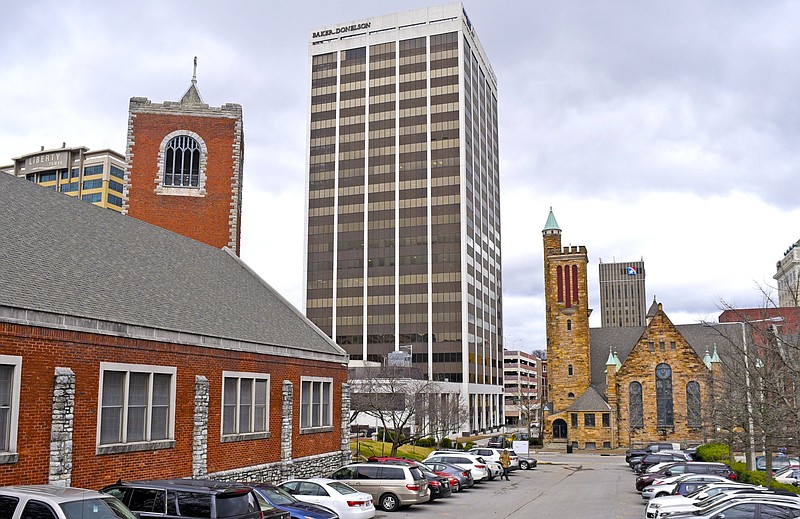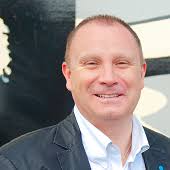Editor's note: Every Wednesday from March 4 until April 1, St. Paul's Episcopal Church will host religious leaders for its annual Thorne Sparkman lecture series. Ahead of each lecture, the Times Free Press offers a conversation with the speaker as part of the weekly "Religion: Got Questions?" series.
The Rev. Dr. Gary Mason is a Methodist minister and director of "Rethinking Conflict," a nonprofit organization focused on peace-building and reconciliation. Mason and his Belfast-based parish played a role in Northern Irish peace negotiations in the 1990s, for which he was recognized by the Queen of England in 2007.
This conversation has been edited for clarity and length.
What will your lecture in Chattanooga be about? How did you choose that topic?
My background is I'm a Methodist clergy person but was very actively involved in the Northern Irish peace process. I'll often say in lectures, conflict primarily involves three factors, and that's land, identity or religion, or a mixture of those three. The talk is going to look at the role of religion, good and bad, dealing with conflict because there's no question what I would call "toxic religion" has undoubtedly fermented conflict globally.
The other thing we will look at in this context is what we call the "political peace process" versus the "social peace process." The political peace of process is really the domain of politicians. In many occasions politicians work on the assumption that once the deal is done and signed - whether that be that in the White House, Jerusalem, Ramallah, Paris, London, wherever - that societal healing automatically follows. In reality, nothing could be further from the truth.
That's really where the social peace process comes in. The social process involves academics, NGOs and religious actors. I often describe that constituency as the social glue that holds peace processes together. People within civic society have a really key role to play in the implementation of building peace. The way we speak of the other, the person who we disagree with politically, in many spaces is at an all-time low. So it's time to ask the question: How can religious actors contribute to a better conversation among people who disagree?
In other interviews, you've talked about your own experience with "toxic theology." How do you define that term and what can people do to recognize it?
It's dehumanizing the other person. It's learning to hide disagreements. Doing away with that is asking the question: How do you create spaces for storytelling, listening to the other person's story, humanizing the other person?
Another theological question we ask in our Christian context is: What is the role of lament? Or, if you want to put it in the secular framework, what is the role of saying, "Sorry"? How do we create spaces in our churches that allow people to say they're sorry, and what does that look like?
Storytelling is a very powerful mechanism because it allows the person to hear the other person's story and to humanize that other person. I often use the bite that when we all think back to when we were kids and the parent, or grandparent or relative, comes and sits beside your bed before you go to sleep, and they say four magic words: "Once upon a time." As a kid, your eyes light up, because you want to hear "once upon a time."
The question for faith traditions is how do we create "once upon a time" moments to allow us to hear the person with whom we disagree? And this is not about papering over deep-seated differences. It's about creating spaces to understand the other person, not necessarily agree with the other person.
And I think religious institutions have a role to play in that because people invariably use theology to demonize the other person. There's 101 examples of a lot of that. As a colleague of mine said during the Irish conflict, most people in our churches did not have guns in their hands. But they most certainly had them in their hearts.
Do you think being a member of clergy helps in conflict resolution or does it sometimes hinder your work?
In my case it has been helpful. Even though in the West, there has been a decline in Christianity, I think people still work on the assumption that hopefully most clergy work within some kind of a moral framework. That includes concepts like honesty, integrity, peace and understanding. I'm not saying other people in society don't work in those, but at least there's a sort of moral code. Many religious actors over the years have had relationships with people in these conflicts, which allow them to speak a moral value into these very dark spaces.
Mason will speak at St. Paul's on 305 W. Seventh St. at 6:45 p.m. on March 11. To register for the event, visit http://www.lentenschool.org/.
From the reporter
I became a journalist to help people see people as people. But highlighting the human side of every policy decision, and how it is affecting your community, takes time as well as support from readers. If you believe in telling the stories of people in your community, please subscribe to the Times Free Press today. Contact me at wmassey@timesfreepress.com or 423-757-6249. Find me on Twitter at @News4Mass.

